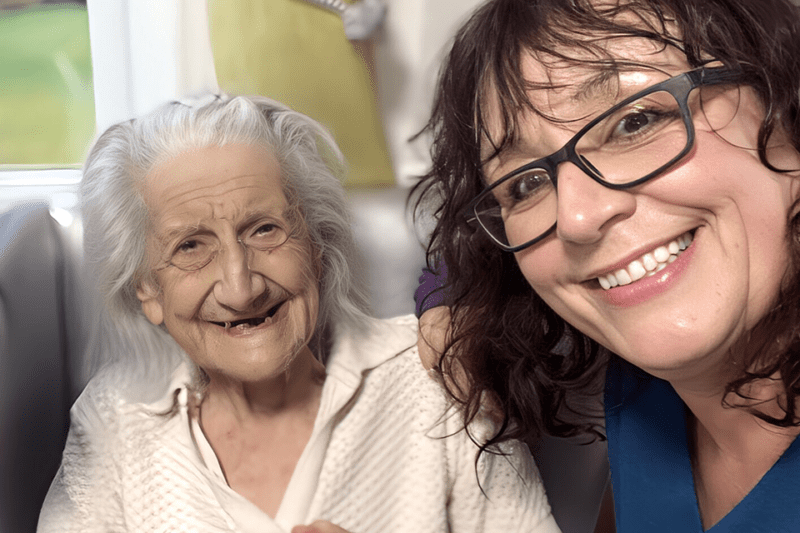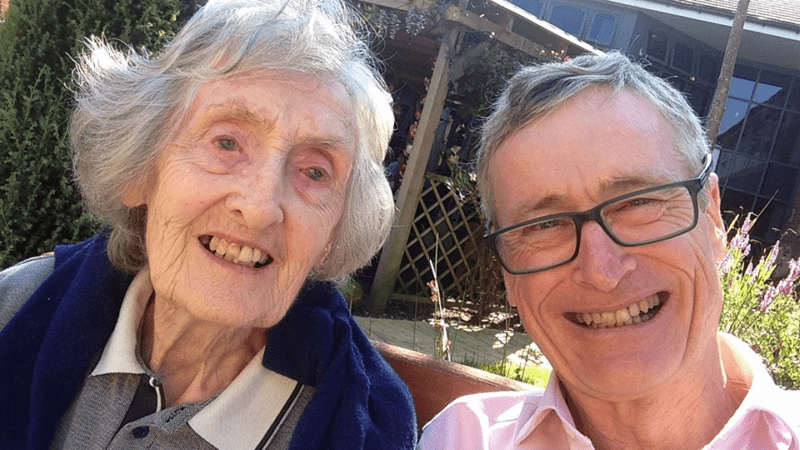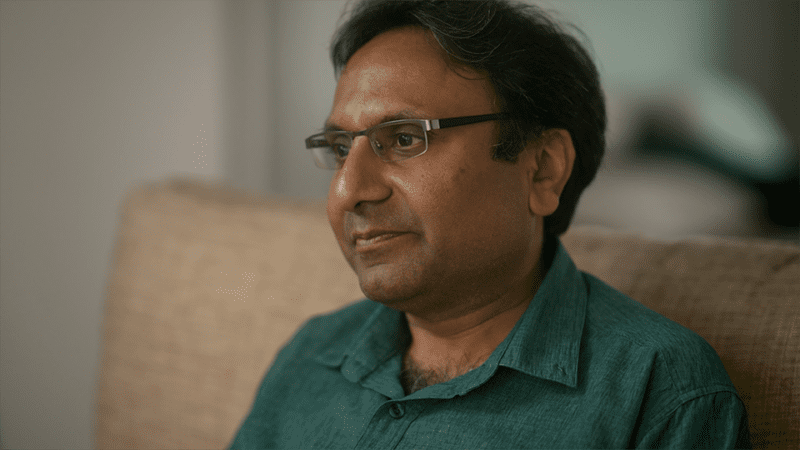
Our Admiral Nurse was there when nobody else was – Shara’s story
Shara reflects on her journey caring for Anna, her mother, who was diagnosed with vascular dementia in 2016.
How to get a diagnosis of dementia is one of the most common questions our Admiral Nurses are asked, so we have broken this question down into the key points we think you may need to know.
We are aware that in some areas, there are waiting lists for a memory assessment or diagnosis. This may be due to delays in accessing GPs, Memory Clinic services, or other healthcare professionals who specialise in diagnosing dementia.
However, there are steps you can take whilst you are waiting for an assessment:
If you need any practical suggestions of how to cope while waiting for a dementia diagnosis, speak to one of our dementia specialist Admiral Nurses.
Once you’ve received a diagnosis of dementia, read our next steps checklist which has been written by our Admiral Nurses.
If you’re concerned that you, or someone you know, is showing signs of dementia, it’s important to see a GP.
There are many different conditions that can mimic the early signs of dementia including: infections, delirium, vitamin deficiency, depression, anxiety and diabetes. These conditions are treatable, so it is important to visit a GP for tests to identify and manage these conditions. Once these conditions have been ruled out and there are still concerns about the ongoing changes then the GP may refer to the specialist memory assessment team for further tests.
An early diagnosis of dementia can help the person and their family to understand what form of dementia they have, why the changes they are experiencing are happening, and what they can do to manage them. It also enables the person and their family to have conversations about how to live as well as possible with the diagnosis and to plan for the future.
The symptoms of dementia include changes in:
However, all of these symptoms can be caused by other conditions – such as depression, an underactive thyroid, a vitamin B12 deficiency, or medication side effects – so it’s important to see a GP in case there’s a cause that may be treatable.
Receiving a diagnosis of dementia can be distressing for the person and their family, and there may be many questions and concerns that need to be discussed with a specialist dementia nurse (Admiral Nurse).
Our dementia specialist Admiral Nurses can help you throughout the process. You can call the free Dementia Helpline on 0800 888 6678 (Monday-Friday 9am-9pm, Saturday and Sunday 9am-5pm) or email helpline@dementiauk.org.
You can also book a phone or video appointment in Admiral Nurse clinics at a time that suits you.
In an initial appointment, the GP should ask the person about:
It’s helpful if a partner, relative or friend goes to the appointment too, as they may have noticed changes that the person themself hasn’t.
They should also briefly test the person’s memory and cognitive abilities. This might include asking them to:
In addition, the doctor should do a physical examination and arrange blood and urine tests to rule out other possible causes of the person’s symptoms.
After the initial appointment, the GP may refer the person to a specialist. This could be:
The person may be seen in a memory clinic, a hospital or a community setting like a GP practice.
Bear in mind that although dementia may be diagnosed by a doctor who specialises in old age, it can also affect younger people. In people aged 65 or under, it’s referred to as young onset dementia.
At the appointment, the specialist should take a detailed medical and family history. In addition, they will ask questions about the person’s abilities with everyday tasks such as shopping, cooking, driving, and self-care, such as washing and dressing.
The specialist should then assess the person’s cognitive abilities using tests of attention, memory, verbal fluency and language, and their visual and spatial abilities. This might include exercises such as:
They may also request a brain scan to look for any abnormalities such as a tumour or evidence of a stroke, if that has not already been done by the GP.
As with the initial GP appointment, it’s a good idea for a family member or someone else who knows the person well to go with them and share any useful information. If they can’t, they may want to write a short letter outlining the issues.
It’s natural for people to be reluctant to see a GP or to be afraid of getting a dementia diagnosis. They might be worried that they’ll lose their independence, have to give up driving, or have to go into care. In some cases, they may not understand why you’re concerned about them, or deny that there are any problems.
Try to explain to the person that their symptoms may be due to another condition that could be treated, as this may make them more willing to see their GP. You could also explain that if they do have dementia, a prompt diagnosis often means they can get the right support sooner.
Sometimes, there may be a delay in being able to arrange a face-to-face appointment with a GP, especially as many practices have kept phone or video appointments.
In both of these circumstances, it may be helpful to notify the GP in writing (either by letter or email) of any concerns you have or symptoms you have noticed, including details such as specific examples and frequency. The GP can then decide if any action needs to be taken or a face-to-face appointment needs to be prioritised.
If the GP won’t refer the person to a specialist, you can ask them to reconsider or for a second opinion – but the GP doesn’t have to agree to this.
If you are experiencing difficulty getting a diagnosis, or have questions or concerns about any aspect of dementia or suspected dementia, our specialist Admiral Nurses can help. Call the free Dementia Helpline on 0800 888 6678 (Monday-Friday 9am-9pm, Saturday and Sunday 9am-5pm) or email helpline@dementiauk.org.
You can also book a phone or video appointment with our virtual Admiral Nurse clinics to discuss the process of getting a diagnosis or any other issues related to dementia or suspected dementia.
Our virtual clinics give you the chance to discuss any questions or concerns with a dementia specialist Admiral Nurse by phone or video call, at a time that suits you.

Shara reflects on her journey caring for Anna, her mother, who was diagnosed with vascular dementia in 2016.

Richard shares his experience caring for his mother, Peggy, and why he’s chosen to leave a gift to Dementia UK in his Will.

Mahersh opens up on the struggles he and wife Nishma have faced in their attempts to secure CHC funding for his mother’s care.